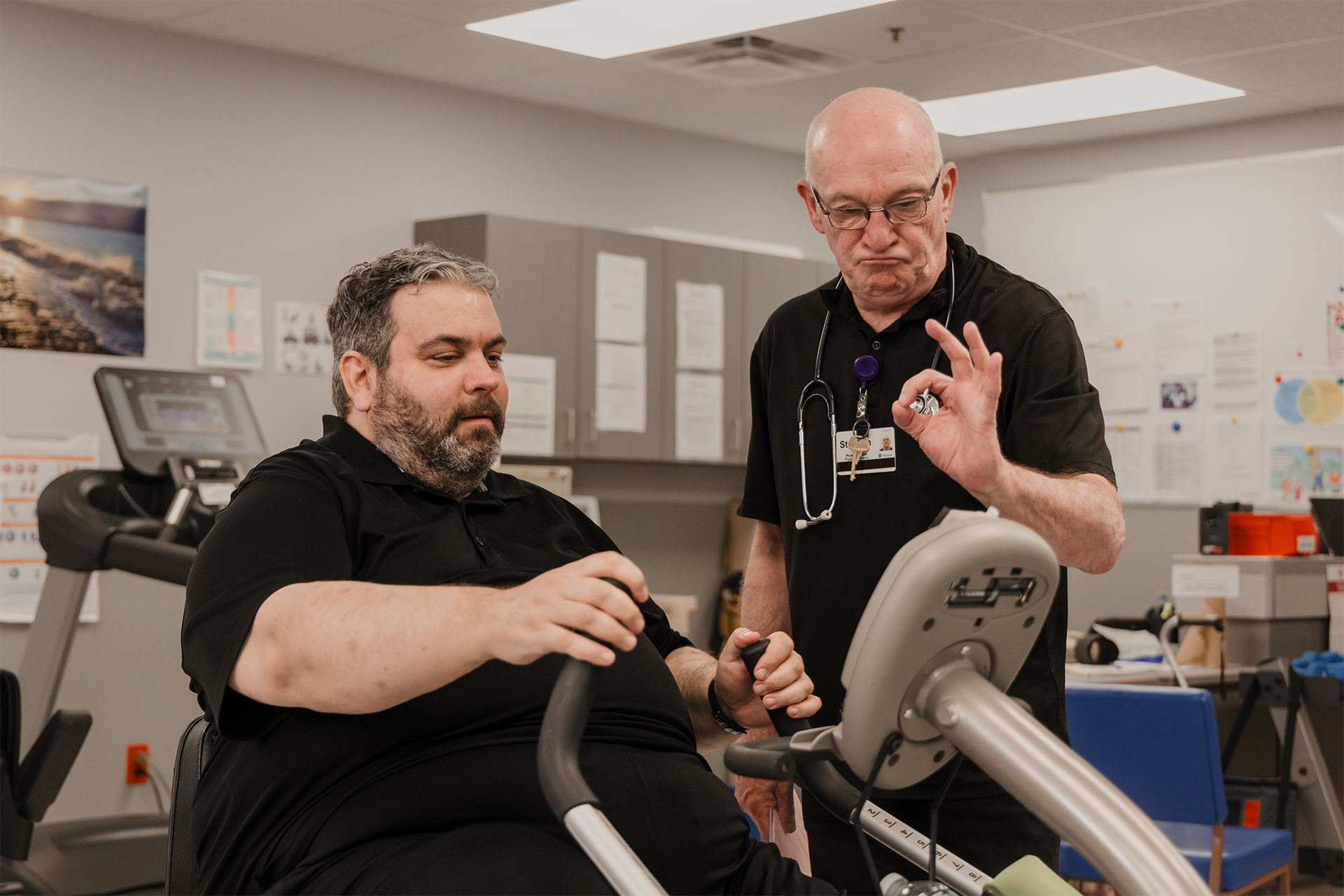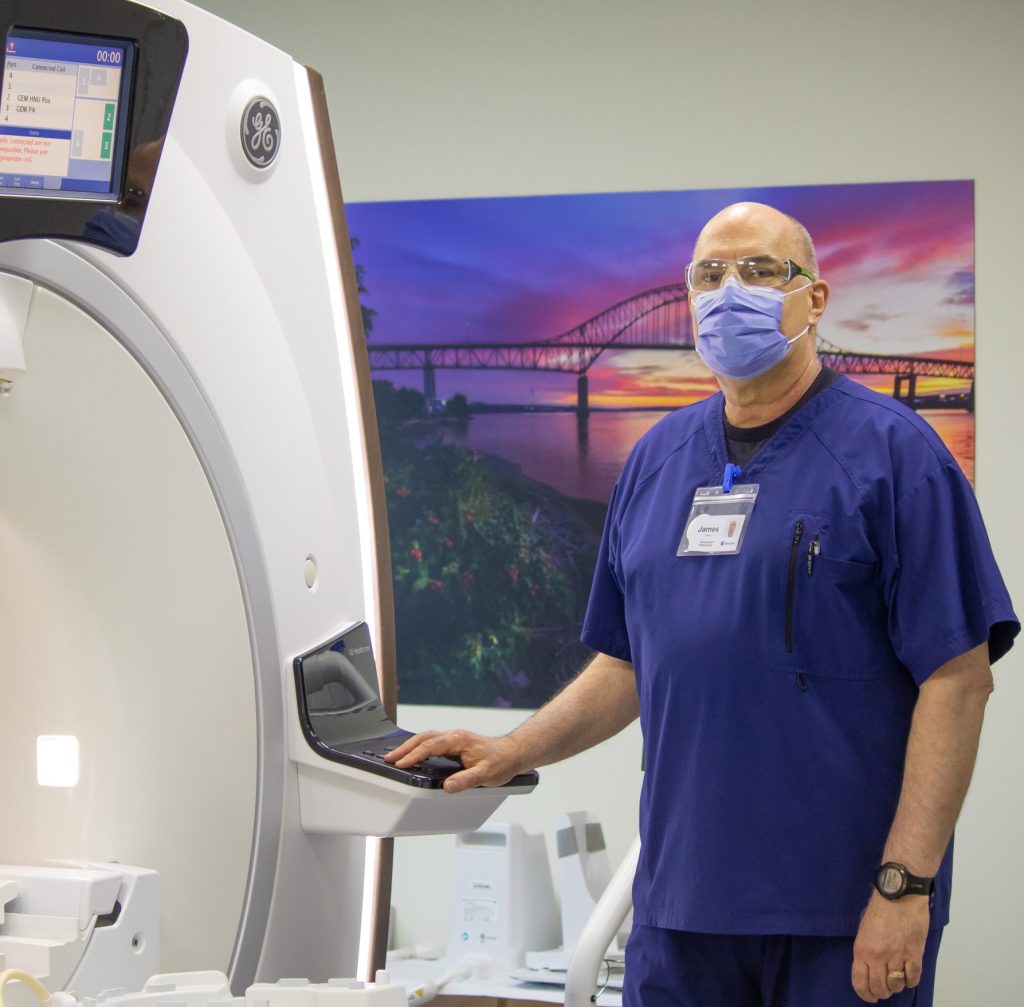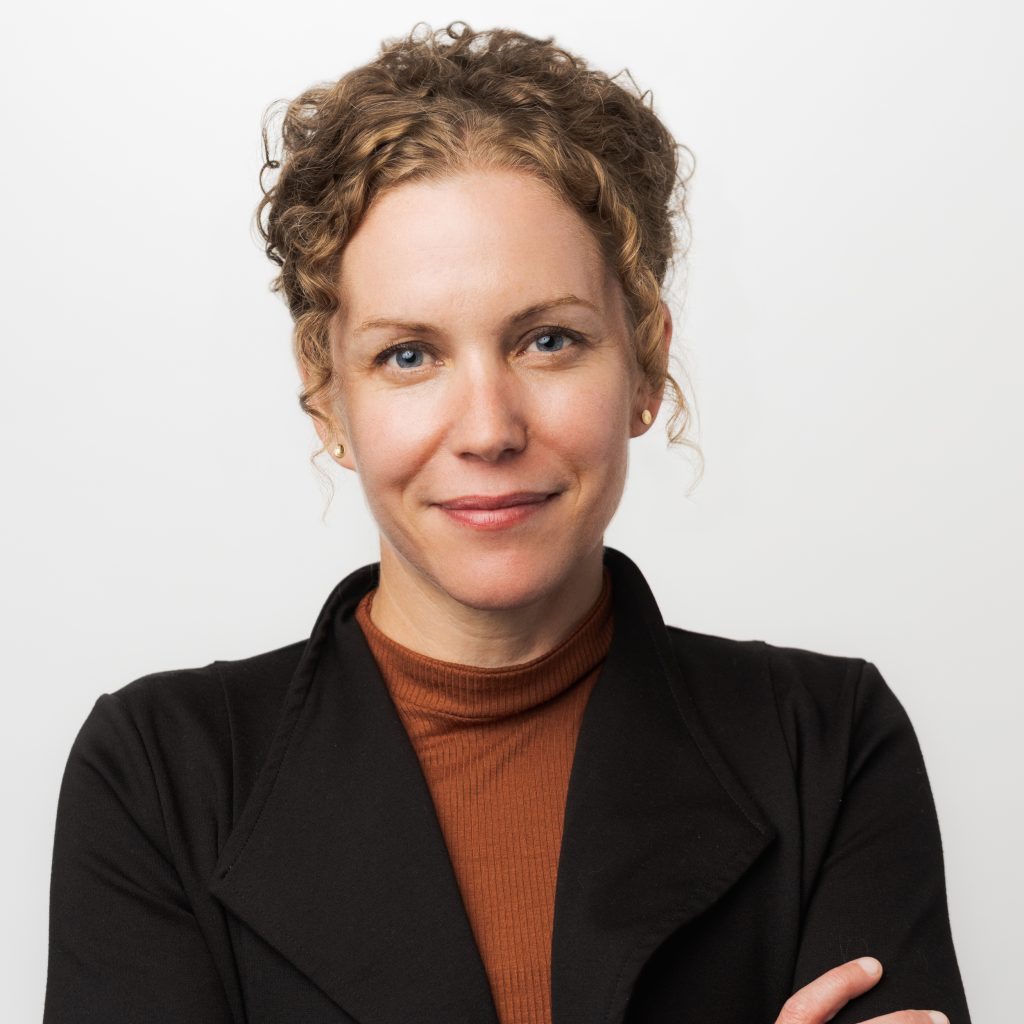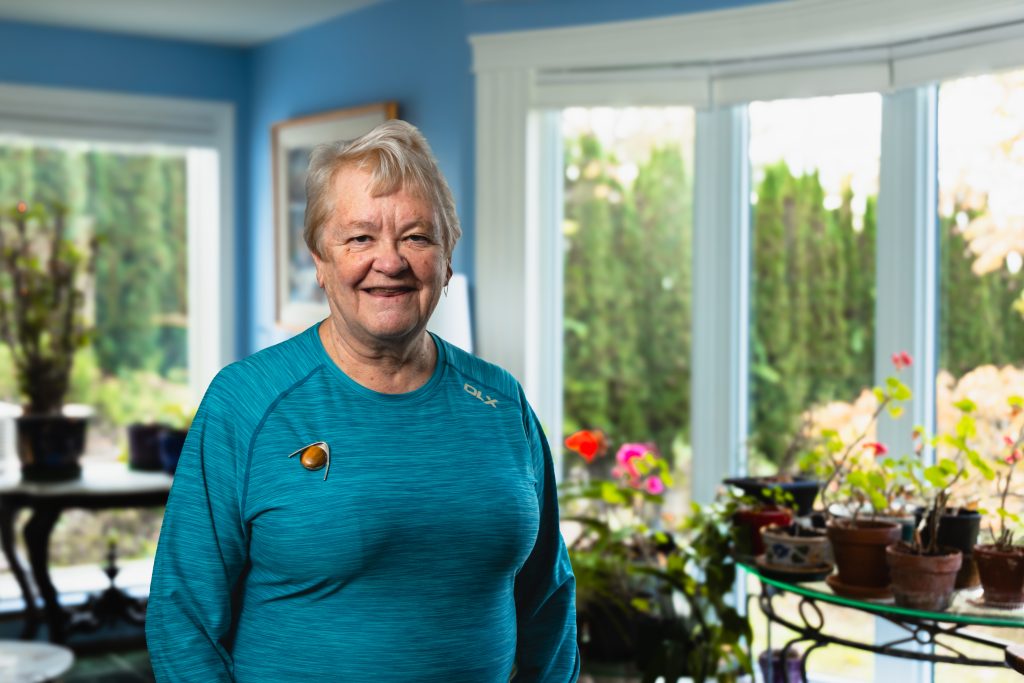News & stories, Heart-Healthy Habits So You Don’t Miss a Beat
September 2023
Joining a cardiac rehabilitation program can reduce your risk of death from future health problems by 50%
Ask anyone who’s had a heart attack or heart surgery and they’ll tell you: it’s a life-changing experience.
There are the physical challenges such as shortness of breath, tiredness, or discomfort.
But there are also mental and emotional impacts of a heart attack or heart surgery.
And, for many people, dealing with the anxiety and depression of a severe health problem can be the hardest part.

But thankfully, cardiac patients at the Saint John Regional Hospital have access to a free, holistic program to help them recover and get back to life with the people and things they love.
What is cardiac rehab?
Cardiac rehab is two parts:
- It’s an exercise program designed specifically for each participant’s unique needs. You’ll learn how to exercise safely, build your muscles, and improve your energy so you can exercise longer and stronger.
- It’s education, support, and training to help you understand your heart condition and find ways to reduce your risk of future health problems.
You’ll get:
- Techniques for managing stress.
- Nutritional information (how to read and understand a food label, for example).
- Support to help you quit smoking.
- Help managing your medications.
- Help reducing the risk of other diseases such as high blood pressure, sleep apnea, obesity, high blood pressure, diabetes, and cholesterol.
Who is cardiac rehab for?
Almost everyone with heart disease can benefit from some type of cardiac rehab, regardless of age, gender, or physical condition. Cardiac rehab can help you if you:
- Have heart problems, such as angina or heart failure, or have had a heart attack.
- Have undergone coronary bypass surgery or a balloon catheter (PTCA) procedure on your heart.
- Have received a heart transplant.
Is exercise safe for me?
A lot of people feel anxious about exercising after a heart disease diagnosis. It’s natural to feel that way – especially if you didn’t exercise much before. Cardiac rehab is safe.
Studies have shown that joining a cardiac rehabilitation program can reduce your risk of death from future health problems by 50%. Cardiac rehab is supervised. The cardiac rehab team is trained to handle emergencies. While you’re exercising, you may be connected to an EKG transmitter. Or you may check your own pulse rate or estimate how hard you are exercising.
Either way, your caring cardiac rehab team will monitor you every step of the way and will help you progress steadily so you can recover even faster.
Your Cardiac Rehab Team
There’s a whole team of health care professionals in your corner to help with your recovery. Your team may include nurse practitioners or doctors (your family doctor, a heart specialist, perhaps a surgeon), nurses, exercise specialists, physiotherapists, dietitians, pharmacists, psychologists, or other behavior therapists. But the most important member of your cardiac rehab team is you.
Your hard work in cardiac rehab will have lifetime benefits for you, and for your loved ones.
Keeping the Cardiac Rehab Program Running
While completely free of charge for patients, it costs close to $800,000 each year to run the cardiac rehab program.
Staffing and program delivery costs are covered by the Provincial Government. But there are many additional expenses not covered by government funds. Things like:
- Treadmills & exercise bikes for the gym
- Personal fitness trackers & scales
- Heart rate & blood pressure monitors
- Conferences & professional development for staff
- Expanding the program to other regions
Thankfully, Billie-Jo Mabey, cardiac rehab program manager, and the dedicated cardiac rehab team volunteer their time to help fill the funding gaps. Each year, they work tirelessly to organize the annual Saint John Cardiac Rehab Walk fundraiser.
And year after year, hundreds of enthusiastic cardiac rehab participants and graduates, local businesses, and community supporters step up in a big way. Since 2000, these big-hearted fundraisers have raised over $400,000 to help keep the cardiac rehab program well-equipped and growing.
About 470 people benefit from the cardiac rehab program each year. And there are so many more people who need this valuable support to help them recover from a heart attack or heart surgery.
Your donations to the Cardiac and Pulmonary Rehabilitation Program give people the hope – and the heart – to overcome their most difficult challenges. If you’d like to make a gift to the cardiac rehab program, visit the cardiac rehab donation page.
If you’d like to learn more about the Cardiac Rehab Program and the services available to help you or a loved one, talk to your doctor, or call (506) 648-7648.


